Hydroponics is a modern method of growing plants that doesn’t require soil. Instead, plants are grown in a nutrient-rich solution that is carefully balanced to provide all the necessary nutrients for healthy growth. Hydroponics offers a range of benefits over traditional soil-based growing methods, making it an increasingly popular choice for both commercial and home growers.
Hydroponic systems are also highly customizable, making it possible to grow a wide variety of plants in a small space. This makes it an ideal choice for urban agriculture, where space is at a premium. Additionally, hydroponics can offer a more environmentally friendly growing option as there is no soil erosion or runoff of nutrients, which can lead to pollution in waterways. Also, since hydroponics often relies on controlled environments such as greenhouses, it reduces the need for harmful pesticides or herbicides.
What Is Hydroponic Farming?

Hydroponic farming is a method of growing crops without soil, instead using a nutrient-rich water solution to deliver the necessary minerals and nutrients to the plant roots. The plants are typically grown in a controlled environment, such as a greenhouse, where the temperature, humidity, and lighting can be carefully monitored and adjusted. This allows for year-round cultivation and can result in faster growth and higher yields than traditional soil-based farming. Hydroponic setups can vary in complexity, from simple DIY setups to large commercial operations, and can be used to grow a wide variety of crops, including vegetables, herbs, and flowers. Overall, hydroponic farming offers an innovative and sustainable approach to agriculture that has the potential to increase crop production while minimizing environmental impact.
What Are the Benefits of Hydroponics?
Maximizes Space

Hydroponics is a modern indoor farming technique that has gained significant popularity in recent years. One of the key benefits of hydroponics is its ability to maximize space. Traditional farming methods require large areas of land, but with hydroponics, plants can be grown vertically, in layers, or in small containers. This means that a significantly larger number of plants can be grown in a much smaller space. Hydroponics also allows for more precise control over the growth environment, resulting in faster and more consistent plant growth. Additionally, hydroponic farming uses less water than traditional farming methods and eliminates the need for harmful pesticides, making it a more sustainable and environmentally-friendly approach to agriculture. Overall, the space-saving benefits of hydroponics make it an ideal indoor farming and technique for urban areas or locations with limited land resources.
Conserves Water

Hydroponics is a method of growing crops without soil, where the plants are instead grown in a nutrient-rich water solution. One of the major benefits of hydroponics is that it conserves water. In traditional agriculture, a significant amount of water is lost through evaporation, runoff, and absorption by the plants roots and soil. However, in hydroponics, water is recirculated through the system, and the plants only absorb the amount they need. This results in water savings of up to 90% compared to traditional agriculture. Additionally, hydroponic systems can be designed to capture and reuse excess water, further reducing waste. The conservation of water and nutrients used in hydroponics makes it a sustainable and eco-friendly method of growing plants, particularly in areas where water is scarce or expensive.
Facilitates a Micro-Climate
Hydroponic farming in global hydroponics market is a modern method of growing plants without soil, in which the plants are grown in a nutrient-rich solution. One of the significant benefits of hydroponics is that it facilitates amicro-climate that is optimal for plant growth. The solution used in hydroponics is carefully balanced to provide the right amount of nutrients and minerals that plants need to thrive, which can be difficult to achieve in traditional soil-based agriculture. Additionally, hydroponic systems can be designed to control temperature, humidity, and light levels to create an ideal growing environment. This level of control over the growing conditions can lead to faster growth, higher yields, and healthier plants. Moreover, hydroponic growing systems also require less water and space compared to traditional agriculture, making it an attractive option for growing crops in urban areas with limited resources. Overall, hydroponics offers several benefits that can improve the efficiency and sustainability of agriculture while providing fresh produce to people.
Produces Higher Yields
Hydroponics is an innovative farming technique that has many benefits over traditional soil-based agriculture. One of the major advantages of hydroponics is that it can produce significantly higher yields than traditional farming methods. This is because hydroponic systems allow for precise control of the growing environment, including temperature, pH levels, and nutrient levels. With the ability to closely monitor and optimize these factors, hydroponic farmers can ensure that their plants are receiving the exact amount of nutrients they need to thrive. Additionally, hydroponic plants can be grown in a much smaller space than traditional crops, meaning that more plants can be grown per square foot of growing area. The result is a higher yield of healthy, nutritious crops that can be harvested more quickly and efficiently. Overall, the increased yields that hydroponics offers make it an attractive option for farmers looking to maximize their productivity and profits.
Require Less Labor
Another significant benefit of hydroponics is that it requires less labor than traditional soil-based farming methods. Hydroponic systems are designed to be highly automated, with sensors and controllers that monitor the environment and make adjustments as needed. This means that farmers don’t need to spend as much time manually checking and tending to their crops, as the hydroponic system takes care of many of these tasks automatically. Additionally, hydroponic systems are often designed to be more ergonomic and easier to work with than traditional farming methods. For example, plants growing in a hydroponic system can be grown at waist height, reducing the need for bending and stooping. Overall, the reduced labor requirements of hydroponics make it an attractive option for farmers who want to reduce their workload and focus on other aspects of their business.
Needs No Soil
Hydroponics is a method of growing plants without soil, instead using nutrient-rich water solutions to nourish the plant’s roots. One of the major benefits of a hydroponics system is that it requires no soil, which can be especially advantageous for areas with poor soil quality or limited land space. Without soil, plants can be grown in smaller areas and can be arranged vertically to maximize space efficiency. Hydroponics also allows for precise control over nutrient intake and water usage, which can lead to faster growth and higher yields. Additionally, hydroponic systems tend to use less water overall than traditional soil-based agriculture, making it a more sustainable and environmentally-friendly option for food production.
Produces Higher Quality Food
Hydroponics is a modern agricultural method that offers a range of benefits, including the production of higher quality food. By controlling the environment in which plants grow, hydroponics systems can produce crops that are free from soil-borne diseases and pests, leading to healthier and more vigorous plants. Additionally, the nutrient-rich water solutions used in hydroponics provide plants with all the necessary nutrients they need to grow, resulting in higher quality produce with greater nutritional value. Hydroponic systems can also be adjusted to create the ideal conditions for each type of plant, such as the optimal temperature, humidity, and lighting, leading to consistent and uniform crops. Overall, hydroponics offers a promising solution for producing high-quality, nutritious food in a sustainable and efficient manner.
Reduce Supply Chain
Hydroponics is a modern method of growing plants without soil, using nutrient-rich water as a medium. One of the significant benefits of hydroponics is that it can reduce the supply chain for fresh produce. Since hydroponics enables plants to grow faster and in controlled environments, it allows for year-round production of fresh vegetables and fruits, regardless of seasonal or weather conditions. This constant supply also means that consumers can access fresh produce locally, reducing the need for long-distance transportation and associated environmental impacts, such as emissions from trucks and airplanes. Additionally, since hydroponic systems can be set up in urban areas, it can minimize the distance between the farm and the consumer, resulting in fresher produce that is healthier and more flavorful.
Predictability and Seasonality
Hydroponics has numerous benefits, including its ability to provide predictability and overcome seasonality in traditional agriculture. With hydroponics, the growing environment can be precisely controlled, allowing for consistent growth and yield rates, and produce food, regardless of external factors like weather or pests. This predictability is particularly beneficial for commercial growers who need to plan for production and market demand. Hydroponics also enables year-round cultivation, which means that crops can be grown out of season, and fresh produce can be available regardless of the time of year. This benefit is especially significant in areas with long, harsh winters or in regions with limited agricultural land. Furthermore, since root growth in hydroponics does not require soil, there is no need for crop rotation, and plants can be grown in the same location repeatedly, increasing production efficiency. Overall, the predictability and seasonality benefits of hydroponics are essential in ensuring consistent, fresh, and sustainable food production.
Crops Grow Faster
Hydroponics is a soil-free method of growing plants indoors that uses nutrient-rich water solutions to nourish plants. One of the most significant benefits of hydroponics is that it can speed up the growth rate of crops. In a hydroponic system, the plants receive the perfect amount of nutrients, water, and light, which results in faster growth rates and higher yields than traditional farming methods. The controlled environment of hydroponics means that plants can be grown in ideal conditions, without the need for pesticides or herbicides, resulting in healthier plants that grow faster. Additionally, since the water solution can be recycled and reused, hydroponics can be a more water-efficient method of cultivation compared to traditional farming. The faster growth rate of hydroponic crops can also result in a higher turnover rate for commercial growers, allowing them to produce more food in less time. Overall, the ability to grow crops faster and more efficiently than conventional agriculture makes hydroponics a valuable method for sustainable and innovative agriculture.
Reduced Rate of Pest And Fungus
One of the benefits of hydroponics is thereduced rate of pests and fungus. In traditional soil-based agriculture, pests and diseases can easily spread from one plant to another, making it challenging to control and manage them effectively. In hydroponics, plants are grown in a controlled environment with no soil, in deep water culture which makes it difficult for pests and diseases to survive and spread. Additionally, hydroponic systems often include measures such as sterilization of equipment, monitoring of nutrient levels, and use of natural pest control methods, which further reduces the risk of infestations. As a result, hydroponic crops are generally healthier, more consistent, and have higher yields compared to plants grown using traditional farming methods.
PH Control
Hydroponics is a method of growing plants without soil, using nutrient-rich water solutions instead. One of the most critical factors in hydroponic plant growth is maintaining the appropriate pH level of the nutrient solution. pH control is vital because it affects the availability of essential nutrients that plants need for healthy growth. When the pH level is too high or too low, certain nutrients can become unavailable to the plants, leading to stunted growth and other problems. By maintaining the proper pH levels, hydroponic growers can ensure that their plants receive all the essential nutrients, leading to faster growth, higher yields, and healthier plants. Additionally, pH control in hydroponics helps prevent diseases caused by harmful pathogens that thrive in unbalanced nutrient solutions. Therefore, hydroponic growers must invest in pH control systems to maximize their yields and ensure the health of their plants.
Provide You A Lot of Fun
Hydroponics is like a fancy, high-tech spa for your plants! It’s like giving them a 5-star treatment where they get to lounge around in a nutrient-rich pool all day long. Plus, there’s no messy soil to get all over your hands and clothes – it’s a clean and tidy growing experience. And forget about pests and weeds, they’re not invited to this party! And let’s not forget about the high yields – your plants will be so happy and productive, they might just start bragging to the other plants in the garden. Is it funny for growers when they focus on taking care of their indoor hydroponic garden?
What’s the Best Hydroponic System?
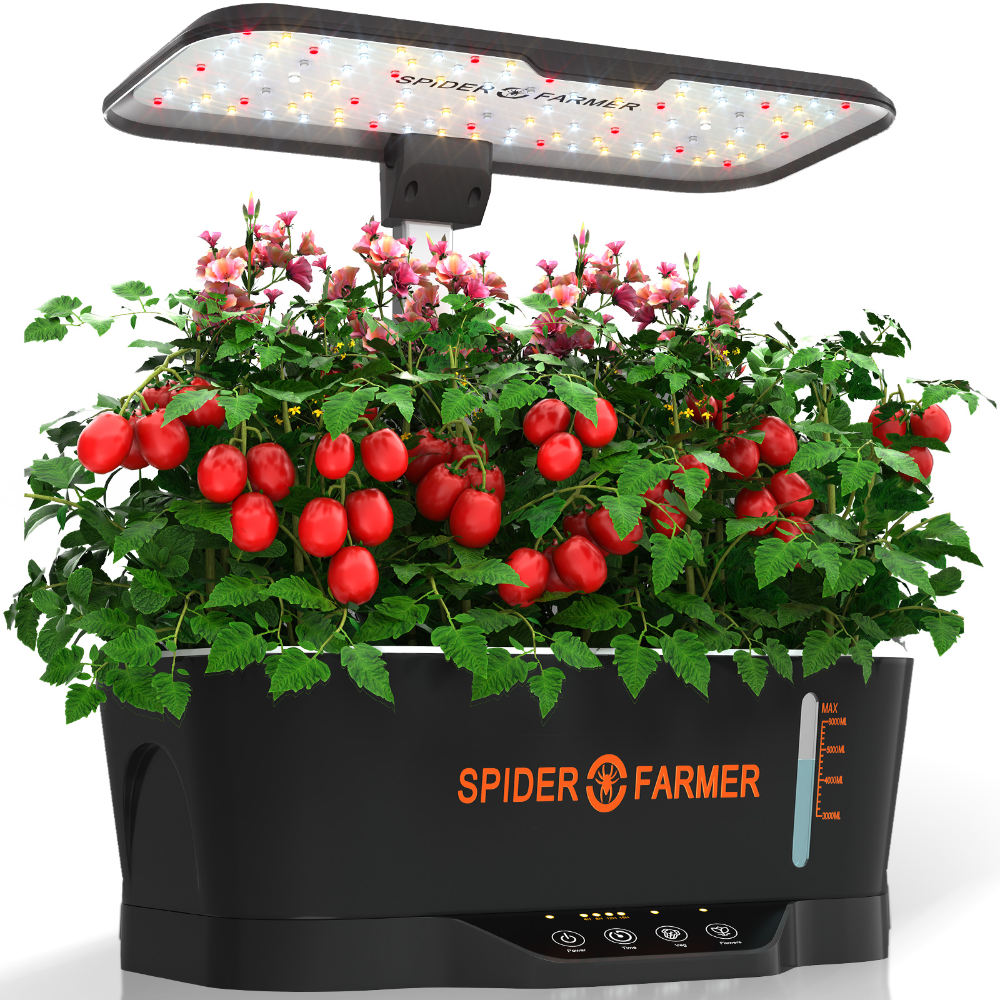
Talking about which hydroponic grow light is the best on the market, many hydroponic growers may be confused about it and don’t know how to choose. To solve this problem, Spider Farmer will choose a high-quality LED grow light for you- Spider Farmer G12 Hydroponic system.
The Spider Farmer G12 hydroponic grow light is a high-end LED grow light that is designed to provide efficient and effective lighting for hydroponically grown plants. The G12 model boasts an impressive 24W of low but efficient power and features a full spectrum of LED lights, including red, blue, and white lights. The light is also adjustable, allowing growers to customize the spectrum and intensity to meet the specific needs of their plants. Besides, this hydroponic growing system allows you to grow plants up to 12 plants at a time , with an adjustable height of 19.4 inches. And it is equipped with a 6L large water tank, plus a visual window for you to see the water level and the growth of plant roots. In addition, It entire system is suitable for planting most herb plants, vegetables, fruits, flowers, including lettuce, basil, pepper, tomato, strawberry, etc, which can be the best gifts for your family and friends.
Overall, the Spider Farmer G12 hydroponic grow light is considered to be a top-performing LED grow light that delivers excellent results for hydroponic growers.



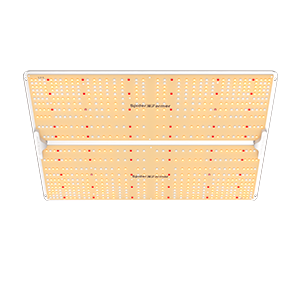
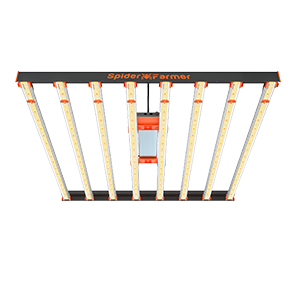
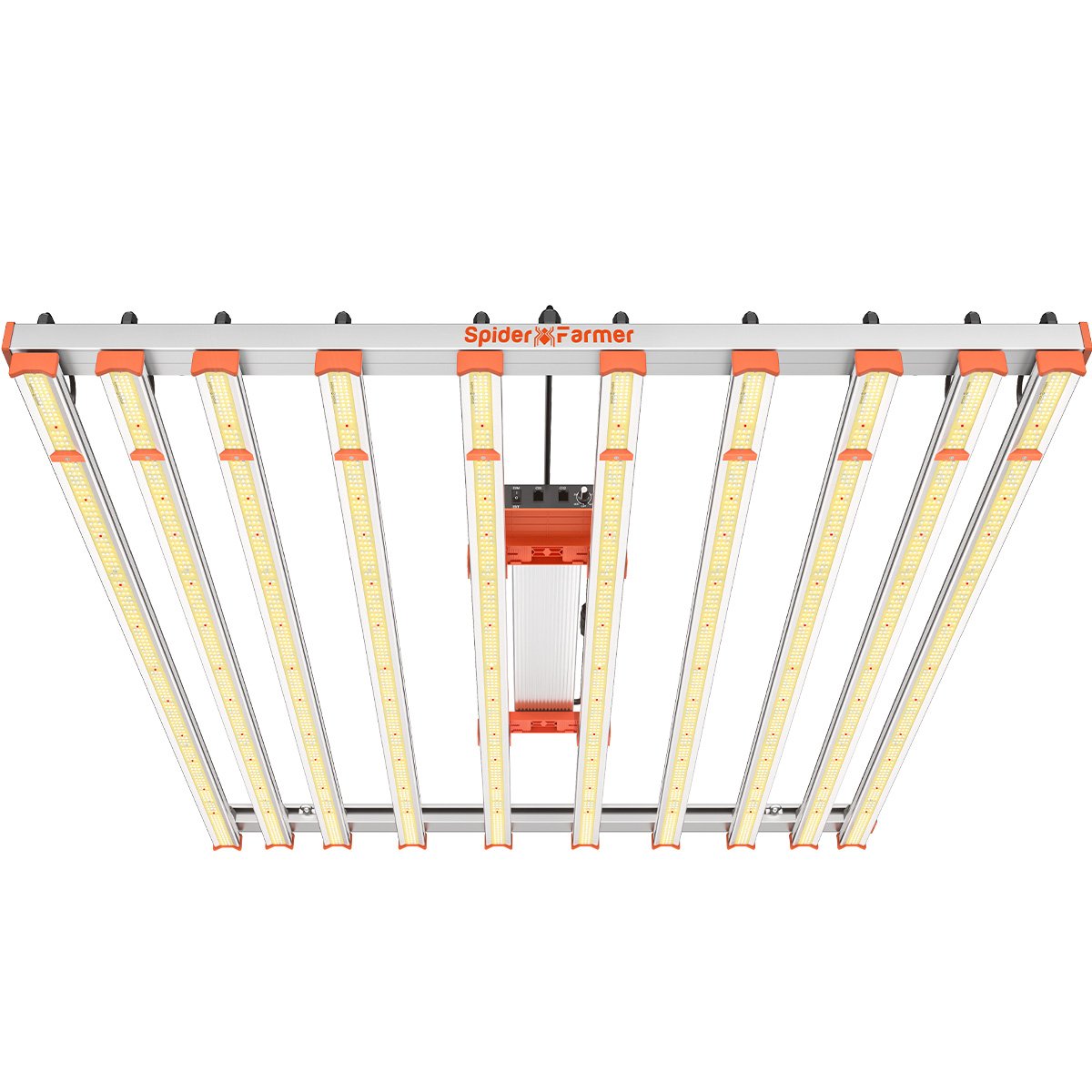

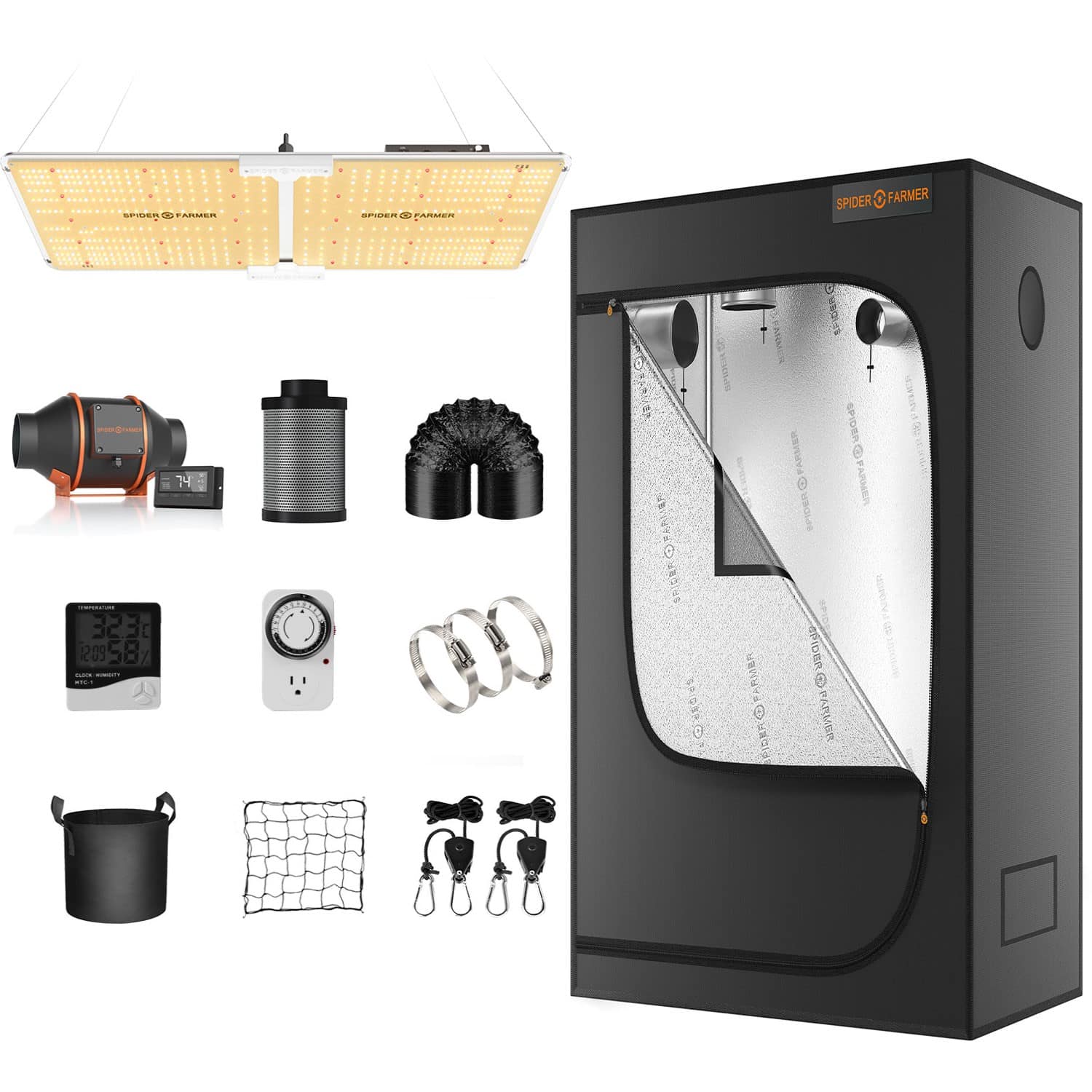
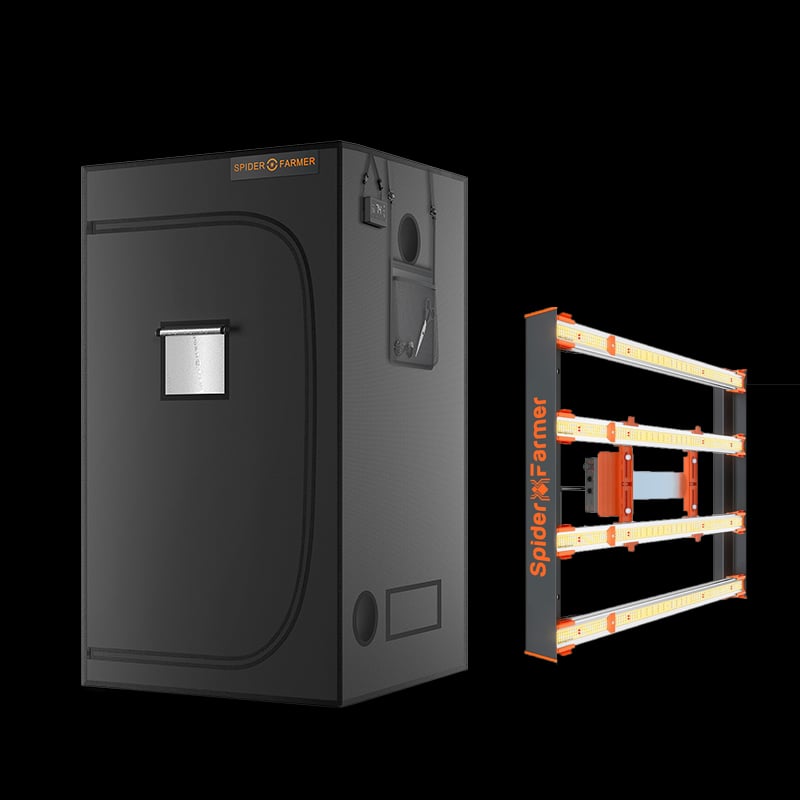
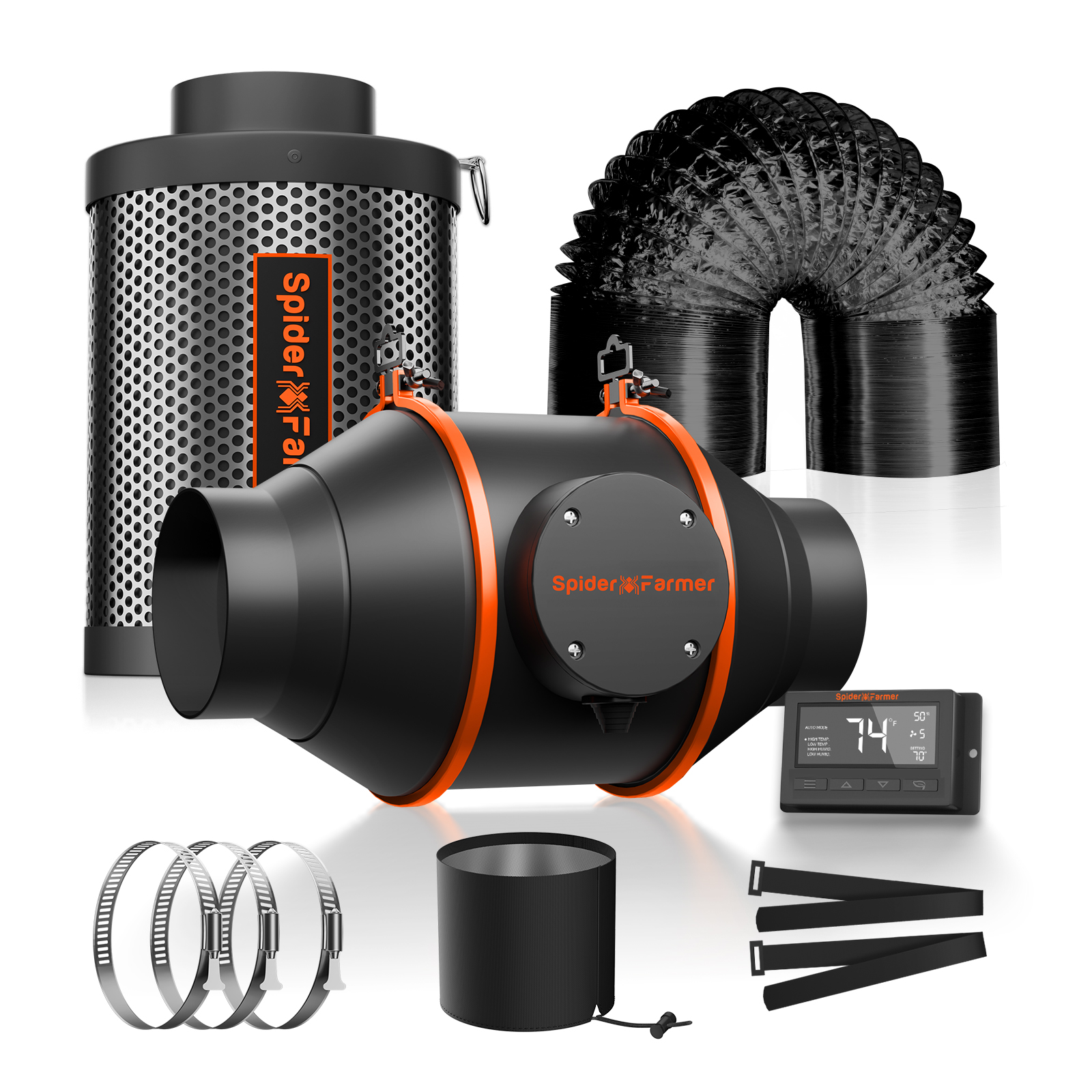
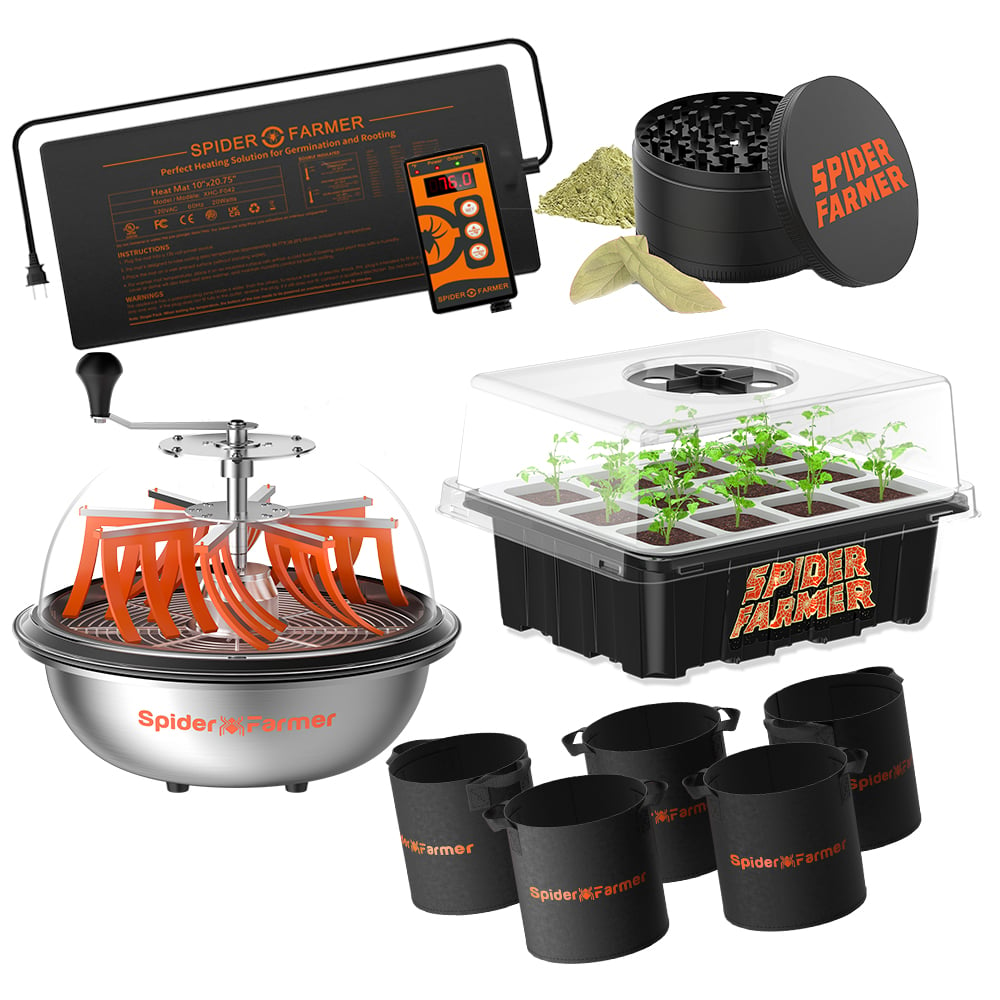
Leave a reply
You must be logged in to post a comment.